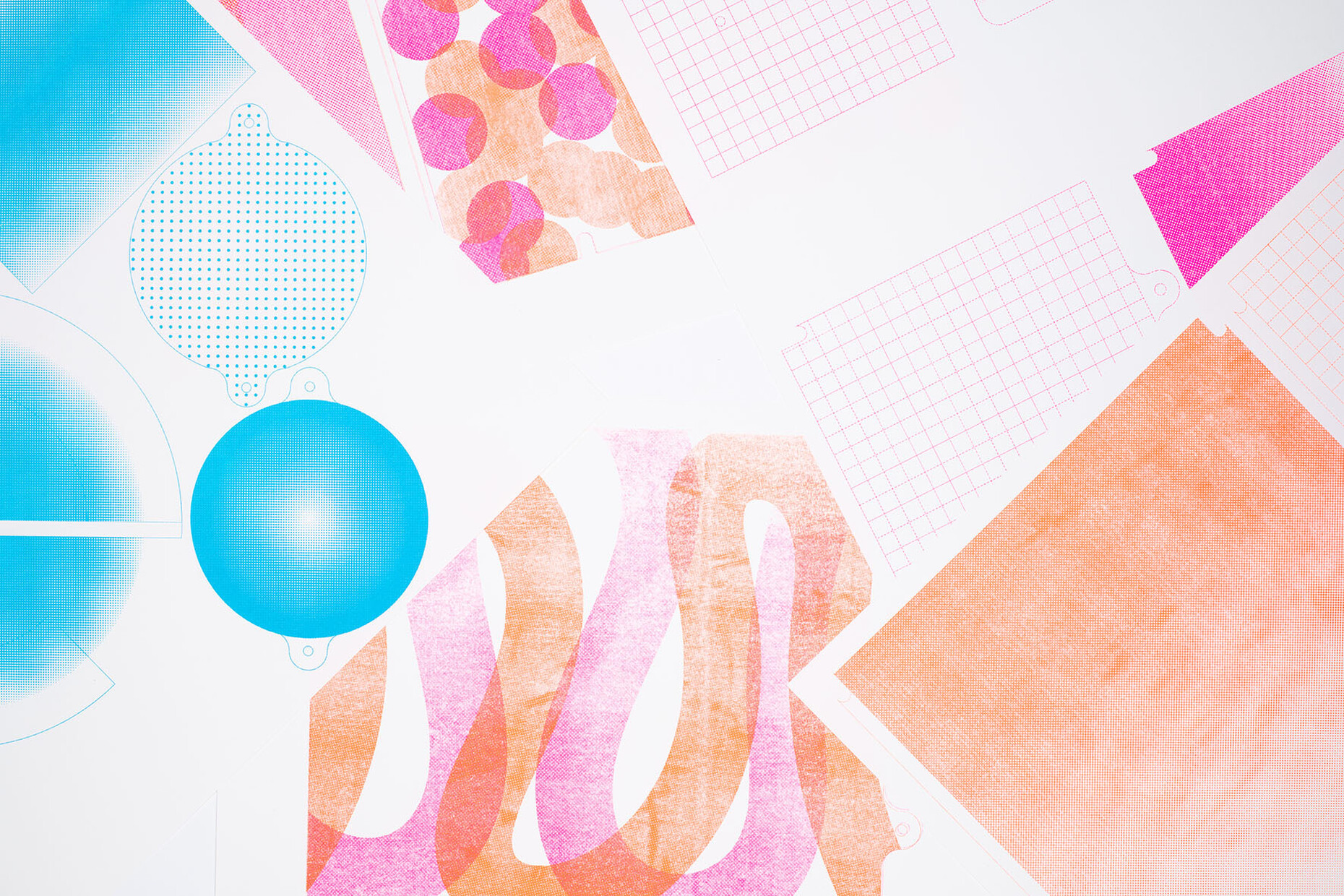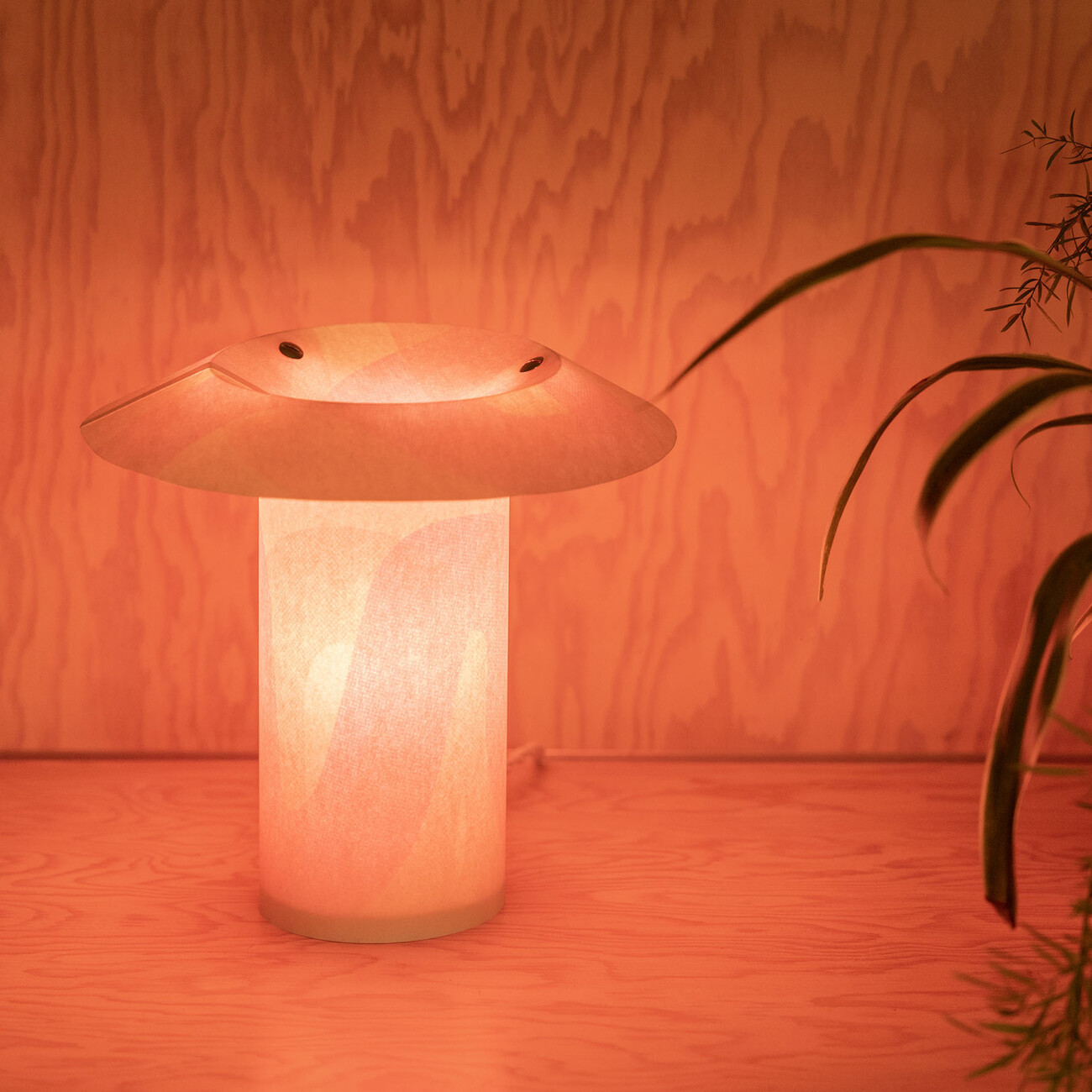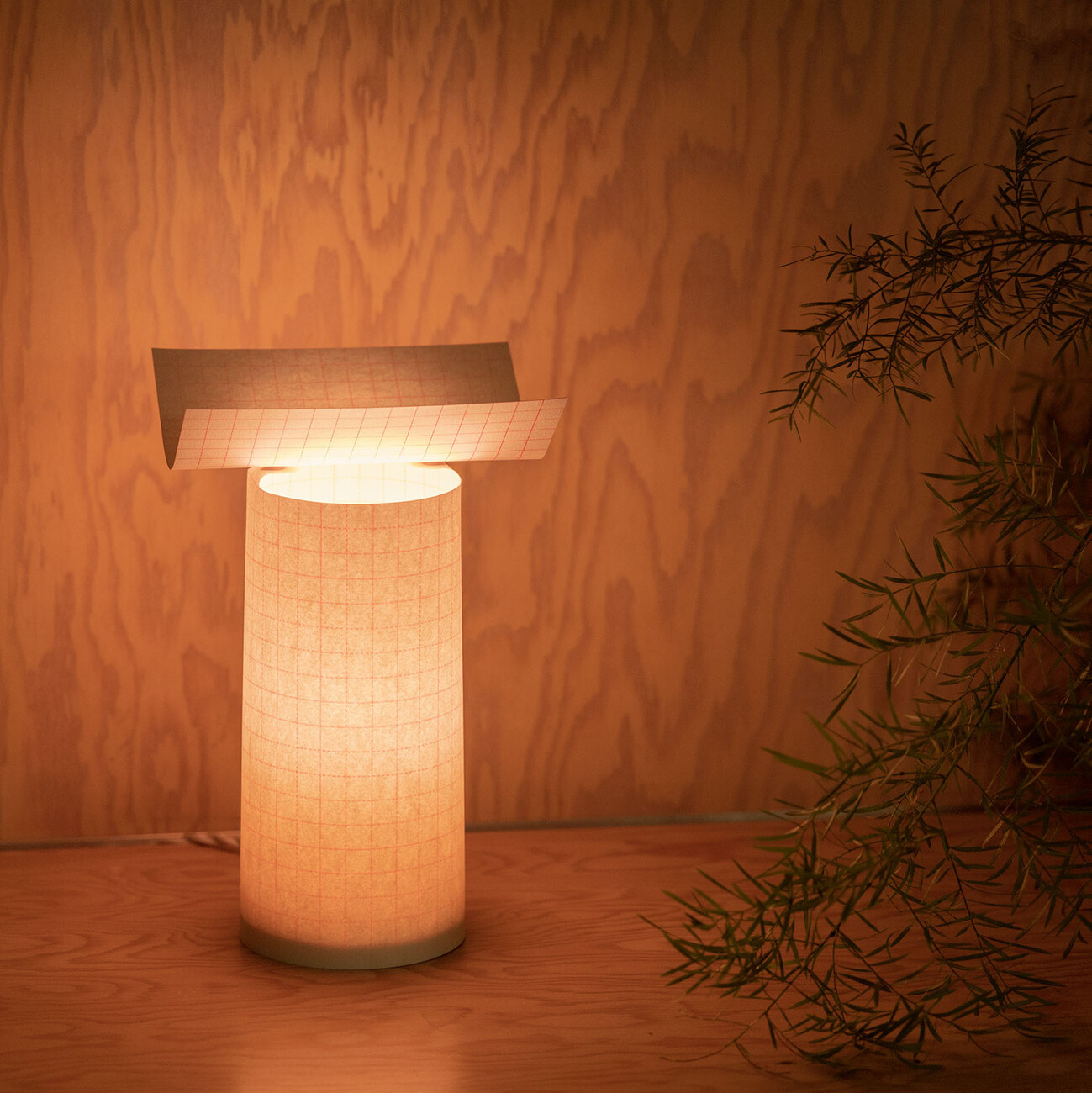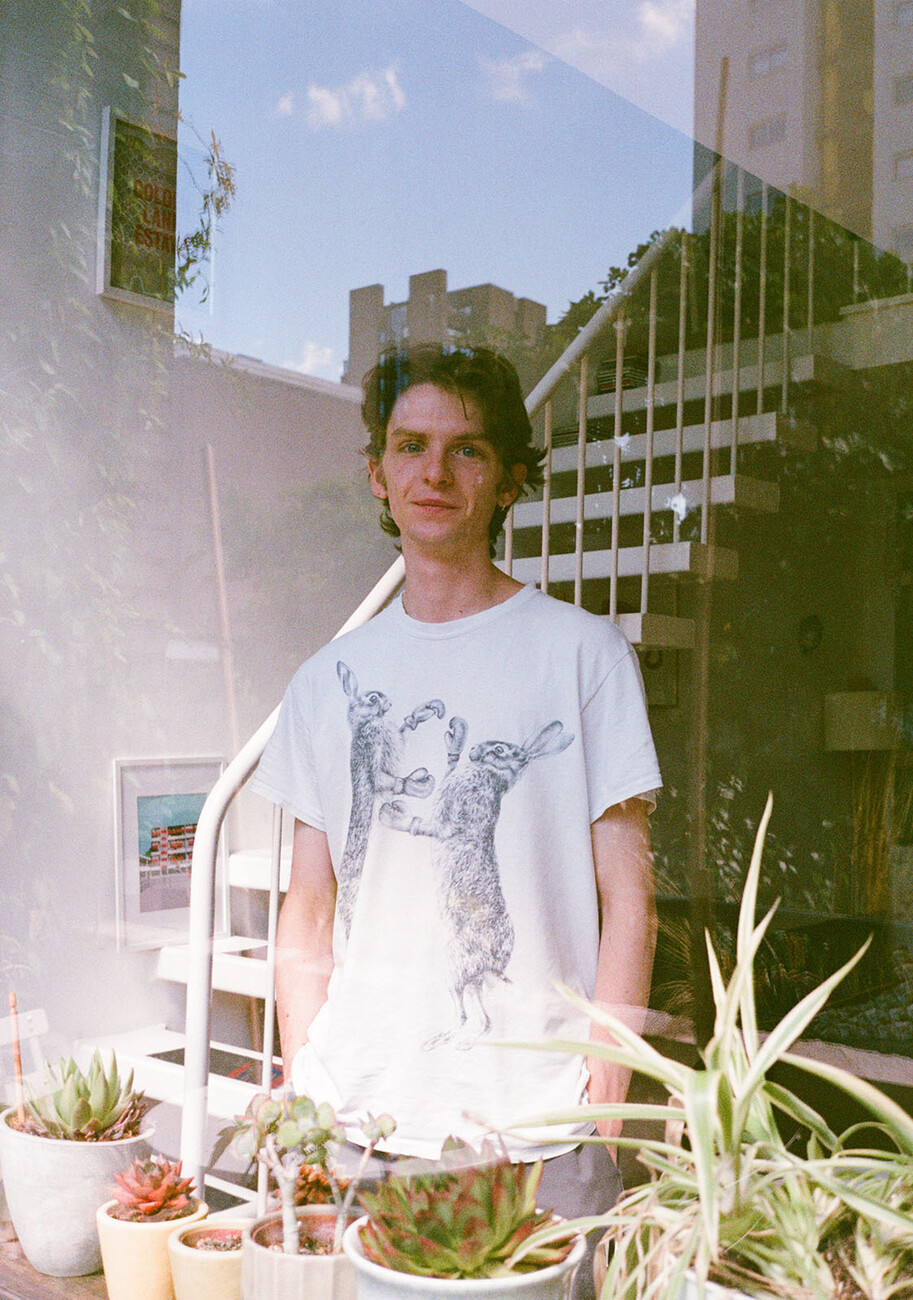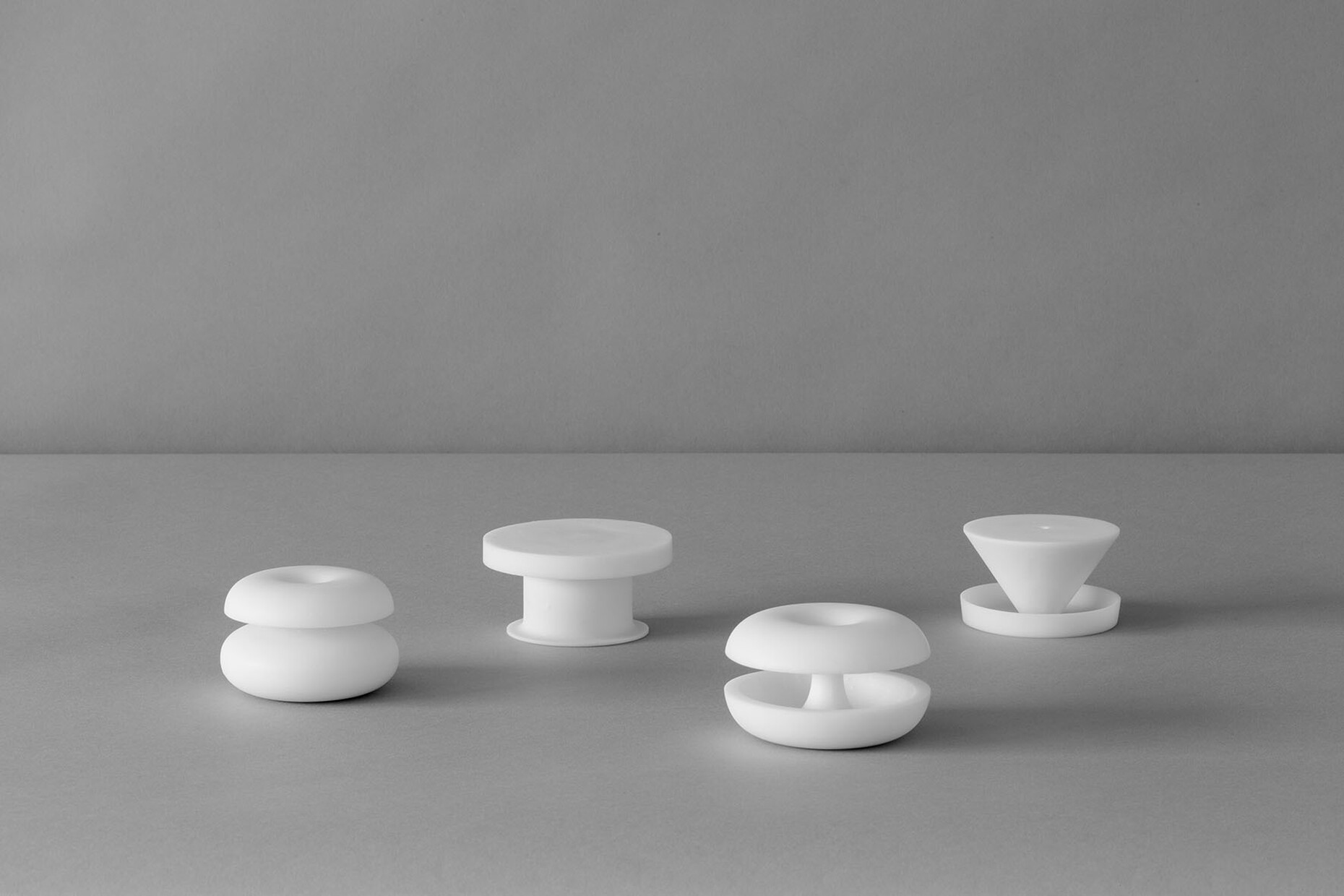YOUNG TALENTS
Surprisingly different
Anna Moldenhauer: For your designs, you choose sustainable manufacturing techniques and modular structures, such as risograph printing, a stencil printing process with soya-based inks, or materials such as nutshells – how can I imagine your approach to design?
Oscar Parkinson: My ‘Riso’ lighting collection in particular is an example of how I like to think about using sustainable processes in my work as it uses a natural soy based ink. The print method is something that has interested me for a while, having discovered it whilst briefly studying Graphic Design before turning to Product and Furniture. Whilst being sustainable it also has a lot things that we as product designers love in a process; it’s efficient, cost-effective and has a natural variation that makes it quite beautiful.
Is the ‘Riso’ lighting collection already ready for the market?
Oscar Parkinson: Currently the collection isn’t ready for market but it is a project I would love to work on selling in the near future. At the moment I am producing the lights in very small quantities and need to iron out some details before I’d feel comfortable selling them, and I’m also looking into making the production process more replicable.
How can I imagine your working day, do you do a lot of research or do you prefer to work haptically?
Oscar Parkinson: I like to do a lot of my research and thinking whilst I'm out and about in London day to day. For me research isn’t just about sitting in a library, it's about making connections with people and feeling inspired by everyday objects and interactions. I tend to do a lot of designing in my head, before I put anything down on paper. I love sketching but I also like to get working with my hands as quickly as possible to get a feel for the shape and proportions, creating models with paper, wood, cardboard and tape. Digital processes normally come much later on in my process as a way of refining the details of a project.
Your current work includes the ‘Bookmark’ luminaire – what interests you about the design of luminaires in general?
Oscar Parkinson: Lighting can influence the atmosphere of a room like few other products, and I also find it exciting to see how different materials interact with light. ‘Bookmark’, which is a side table, bookshelf and lamp all in one object was intended to portion off a section of a room with light to create a reading corner, and I ended up looking into different glazes and types of clay that allowed me to achieve that. For other projects I’ve used wood to add warmth to light and then the ‘Riso’ collection was a more direct exploration in changing the colour of light through printing.
I also saw a project with a folding street lamp on your Instagram account. What's it all about?
Oscar Parkinson: Yes! This was part of a project looking into lighting in public spaces and how street lights are often set up for people to move through a space rather than use it. I wanted to invite people to have the agency to use a public space in new ways through their interaction with the light. The idea was that the lights would be spread throughout a public space, and can be raised, lowered or manoeuvred to create different areas of light for more intimate or social gatherings.
The tilting option would also make it easier to repair and clean.
Oscar Parkinson: Exactly. The whole idea actually came from looking at how street lights are lowered on a pivot point for servicing.
What do you want to convey with your design?
Oscar Parkinson: I think that good design is simplifying a solution to a problem right down, whilst keeping an element of playfulness that can often be lost if objects are designed purely based on function. For example with the ‘Bookmark’ lamp, you can stack books up to determine the height of the integrated side table. It’s about having a playful interaction with the objects in your home that also provide a very practical function.
What kind of new approach would you like to position yourself with?
Oscar Parkinson: I would like to encourage designing more consciously, considering what is needed but also what brings joy, bringing new objects into the world always harbours a responsibility. The life cycle of a product for example must be considered right from the start.
How do you currently feel about the situation for young designers in London and in general?
Oscar Parkinson: From my perspective there are quite a lot of differences between London and places I experienced in Europe. Whilst in Rotterdam and Berlin students seemed to be more positive about working for themselves and starting studios on the outskirts of the places they were studying, the story feels quite different in London where it is difficult to start up without the finances to rent a space as everything is so expensive here. Having the opportunity to experiment with your own ideas early on after studying is a real privilege and I get the sense that a lot of people here are looking to work for other studios in the meantime to build up experience and a bit of money.
What are you currently working on?
Oscar Parkinson: I’ll be doing an internship for the next six months but I’m also thinking about a project surrounding hardware. I love to spend my free time in hardware shops looking through components and various bits and bobs! I like the idea that through these cheap prefabricated objects, designers in the early stages of their career can have access to production methods that are out of reach such as injection or rotational moulding.
